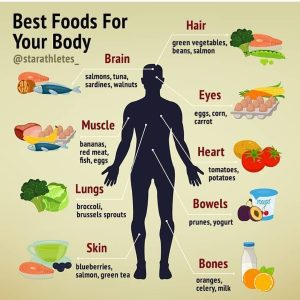
In today’s fast-paced world, our joints can take a beating. Whether it’s due to an active lifestyle, sports injuries, aging, or certain medical conditions, joint pain can significantly impact our daily lives. While there are various treatment options available, supplements can play a crucial role in supporting joint health and managing pain. In this article, we will explore some popular supplements known for their potential effectiveness in joint health and pain management.
1. Glucosamine and Chondroitin
Glucosamine and chondroitin are two widely studied supplements often used together. Glucosamine is a naturally occurring compound found in the body, specifically in the fluid surrounding the joints. It plays a vital role in building and maintaining joint cartilage. Chondroitin, on the other hand, is a component of cartilage that provides cushioning and flexibility.
Studies have suggested that glucosamine and chondroitin may help reduce joint pain, improve joint function, and slow down the progression of joint damage in people with osteoarthritis, the most common form of arthritis. However, the results have been mixed, and more research is needed to fully understand their effectiveness.
Markup: <h2>1. Glucosamine and Chondroitin</h2>
2. Omega-3 Fatty Acids
Omega-3 fatty acids are essential fats that have numerous health benefits, including reducing inflammation. Inflammation is often a contributing factor to joint pain and discomfort. Fish oil, a prime source of omega-3 fatty acids, has shown promise in reducing joint stiffness and pain, particularly in individuals with rheumatoid arthritis.
While more research is needed to establish a clear connection between omega-3 fatty acids and joint health, studies indicate that these supplements can have a positive impact on joint inflammation for some individuals.
Markup: <h2>2. Omega-3 Fatty Acids</h2>
3. Turmeric
Turmeric is a yellow spice commonly used in Indian cuisine. It contains a compound called curcumin, known for its anti-inflammatory properties. As inflammation is a leading cause of joint pain, curcumin has gained attention as a potential natural remedy for joint health.
Several studies have shown that curcumin can effectively reduce inflammation and provide pain relief in individuals with osteoarthritis and rheumatoid arthritis. However, the bioavailability of curcumin is relatively low, meaning the body has difficulty absorbing and utilizing it. To enhance its absorption, it is often recommended to pair turmeric supplements with piperine, a compound found in black pepper.
Markup: <h2>3. Turmeric</h2>
4. Vitamin D
Vitamin D is crucial for bone health as it aids in the absorption of calcium. Low levels of vitamin D have been correlated with an increased risk of developing joint pain and other musculoskeletal conditions. Moreover, research suggests that vitamin D deficiency may worsen symptoms in individuals with arthritis.
While it is ideal to obtain vitamin D from natural sunlight, supplementation can be beneficial, especially for individuals with limited sun exposure. Consult with a healthcare professional to determine your vitamin D levels and the appropriate dosage.
Markup: <h2>4. Vitamin D</h2>
5. Collagen
Collagen is a protein that is abundant in our bodies, particularly in connective tissues, skin, and bones. It provides structural support and helps maintain joint integrity. As we age, collagen production naturally declines, leading to joint degeneration and pain.
Supplementing with collagen peptides may help support joint health by promoting cartilage regeneration, reducing inflammation, and increasing joint flexibility. However, more research is needed to determine the optimal dosage and effectiveness of collagen supplementation.
Markup: <h2>5. Collagen</h2>
In Conclusion
Supplements can be valuable additions to a comprehensive approach to joint health and pain management. While these supplements have shown potential benefits, it is essential to consult with a healthcare professional before starting any new regimen. Additionally, remember that each individual’s response to supplements may vary, and a holistic approach that includes exercise, a balanced diet, and proper medical guidance is key to promoting joint health and managing pain effectively.
Markup: <h2>In Conclusion</h2>

